
Mili: The Hidden Gem of the Marshall Islands
Nestled in the vast expanse of the Pacific Ocean, Mili Atoll in the Marshall Islands offers a serene escape from the hustle and bustle of modern life. This picturesque atoll, with its clear blue waters and pristine beaches, is a paradise for those seeking tranquility and natural beauty. The untouched coral reefs surrounding Mili are a haven for snorkeling and diving enthusiasts, providing a glimpse into an underwater world teeming with vibrant marine life. Beyond its stunning landscapes, Mili holds a rich history waiting to be explored. The atoll played a significant role during World War II, and remnants from this era can still be found, offering a unique peek into the past. Walking through the atoll, you can discover old bunkers and aircraft wrecks, making it a fascinating destination for history buffs. The local culture in Mili is warm and welcoming. Visitors can immerse themselves in the Marshallese way of life, experiencing traditional dances, local crafts, and authentic cuisine. The sense of community and hospitality here is palpable, making every traveler feel at home. Whether you're exploring the lush greenery, relaxing on the sandy shores, or engaging with the locals, Mili promises an unforgettable experience.
Local tips in Mili
- Pack lightweight clothing and plenty of sunscreen. The tropical climate can be quite intense.
- Bring cash as there are limited ATMs and credit card facilities on the atoll.
- Learn a few Marshallese phrases to connect better with the locals and enhance your cultural experience.
- Respect local customs, especially when visiting cultural sites or participating in traditional activities.
- Plan your visit during the dry season (November to April) for the best weather conditions.
Mili: The Hidden Gem of the Marshall Islands
Nestled in the vast expanse of the Pacific Ocean, Mili Atoll in the Marshall Islands offers a serene escape from the hustle and bustle of modern life. This picturesque atoll, with its clear blue waters and pristine beaches, is a paradise for those seeking tranquility and natural beauty. The untouched coral reefs surrounding Mili are a haven for snorkeling and diving enthusiasts, providing a glimpse into an underwater world teeming with vibrant marine life. Beyond its stunning landscapes, Mili holds a rich history waiting to be explored. The atoll played a significant role during World War II, and remnants from this era can still be found, offering a unique peek into the past. Walking through the atoll, you can discover old bunkers and aircraft wrecks, making it a fascinating destination for history buffs. The local culture in Mili is warm and welcoming. Visitors can immerse themselves in the Marshallese way of life, experiencing traditional dances, local crafts, and authentic cuisine. The sense of community and hospitality here is palpable, making every traveler feel at home. Whether you're exploring the lush greenery, relaxing on the sandy shores, or engaging with the locals, Mili promises an unforgettable experience.
When is the best time to go to Mili?
Iconic landmarks you can’t miss
Marshall Islands Resort
Discover the Marshall Islands Resort, your gateway to paradise with stunning ocean views, cultural experiences, and exciting adventures in the heart of the Pacific.

Emon Beach
Experience the pristine beauty of Emon Beach in the Marshall Islands, where relaxation meets adventure in a tropical paradise.

Majuro
Discover the enchanting beauty and rich culture of Majuro Atoll, a tropical paradise in the heart of the Marshall Islands.
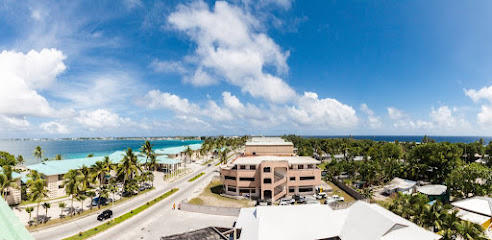
Hotel Robert Reimers
Discover the charm of the Marshall Islands at Hotel Robert Reimers, where comfort meets local culture in a breathtaking coastal setting.
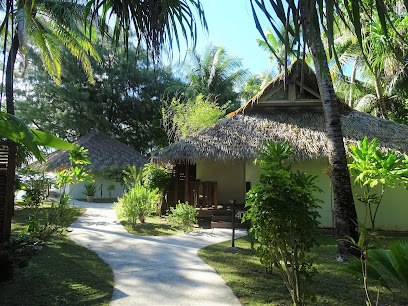
Mili Atoll
Explore Mili Atoll, a serene paradise in the Marshall Islands, where pristine beaches meet vibrant coral reefs and rich cultural heritage.

Kingdom Hall of Jehovah’s Witnesses, Laura Congregation
Discover the welcoming atmosphere and community spirit at the Kingdom Hall of Jehovah's Witnesses in Majuro, a unique cultural experience in the Marshall Islands.

Geography of the Marshall Islands
Explore the pristine beauty and vibrant culture of the Marshall Islands, a hidden gem in the Pacific perfect for adventure and relaxation.

Laura
Explore the tranquil beauty of Majuro Atoll, the capital of the Marshall Islands, with its stunning beaches, rich culture, and vibrant marine life.
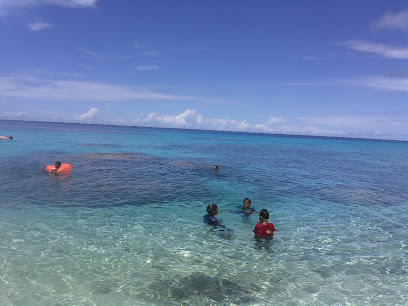
Marshallese ship
Discover the historical significance and stunning natural beauty of the Marshallese Ship, a must-visit landmark in Majuro Atoll's rich maritime heritage.

Nell
Explore Nell Island, a tranquil paradise in Kwajalein Atoll, featuring stunning beaches, vibrant marine life, and an escape from the modern hustle.

Mili Island
Explore the untouched beauty of Mili Island in the Marshall Islands, where crystal-clear waters meet rich cultural experiences.

The Salvation Army
Explore the heart of Majuro Atoll at The Salvation Army, a community hub of compassion and service steeped in local culture and history.

Marshall’s Insurance Agency
Discover peace of mind in the Marshall Islands with personalized insurance solutions at Marshall's Insurance Agency, your trusted partner in Majuro.

Marshall Islands Conservation Society (MICS)
Explore the Marshall Islands Conservation Society, where nature meets passion in the heart of the Pacific, dedicated to preserving biodiversity and promoting sustainability.

Parliament of the Marshall Islands (Nitijela)
Explore the Parliament of the Marshall Islands, a symbol of democratic governance and cultural heritage in Majuro Atoll, offering insights into local political life.

Essential places to dine
Hali'imaile General Store
Experience authentic Hawaiian cuisine at Hali'imaile General Store—where local flavors meet island charm in the heart of Maui.
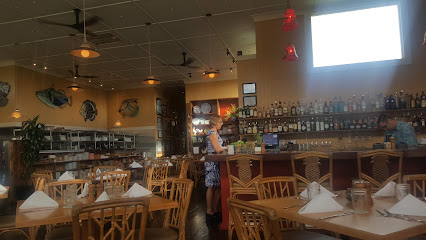
Egghead Cafe
Experience the best breakfast in Honolulu at Egghead Cafe, where Asian fusion meets classic brunch favorites in a cozy setting.
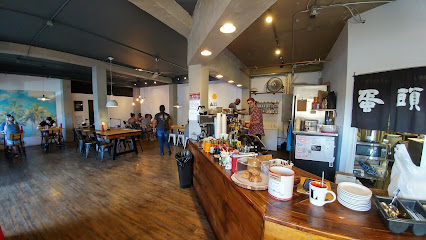
Paddlers Restaurant and Bar
Experience authentic Hawaiian flavors at Paddlers Restaurant and Bar in Kaunakakai—where culinary excellence meets vibrant nightlife.
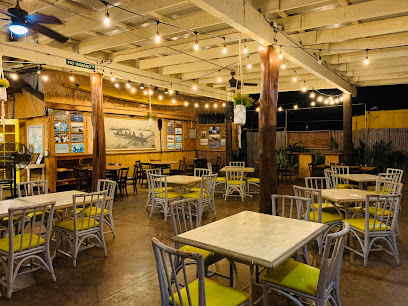
Tide Table Restaurant & Lounge
Discover fresh seafood and local flavors at Tide Table Restaurant & Lounge in Majuro - where every meal is paired with breathtaking ocean views.
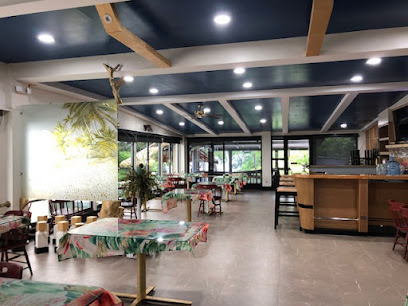
Toeak Bar and Grill
Discover Toeak Bar and Grill: A Culinary Gem in Majuro Atoll Blending Local Flavors with International Cuisine for an Unforgettable Dining Experience.
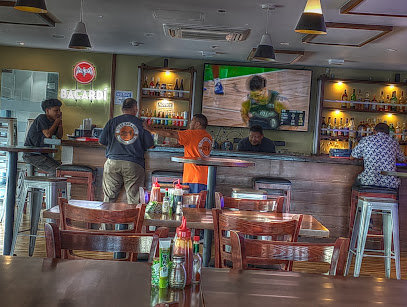
Yummy
Experience authentic island flavors at Yummy, Delap-Uliga-Djarrit's top takeout restaurant in Majuro Atoll.
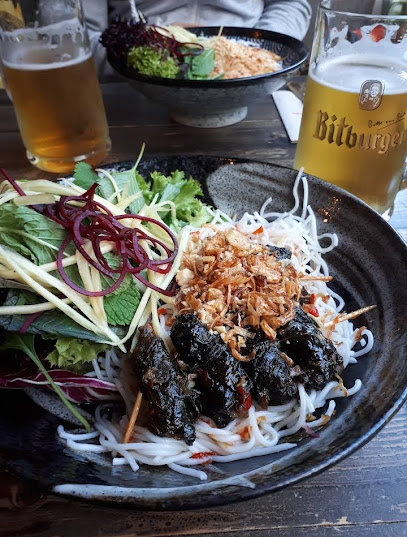
Island Star
Experience the flavors of the Marshall Islands at Island Star - where local cuisine meets vibrant culture in Majuro Atoll.
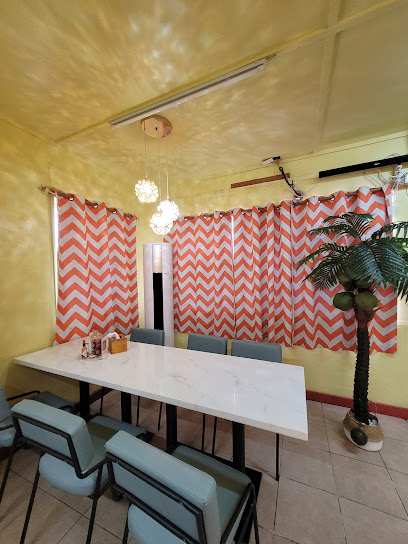
Blue Lagoon Restaurant
Experience exquisite flavors at Blue Lagoon Restaurant in Majuro Atoll – where fresh ingredients meet stunning views.
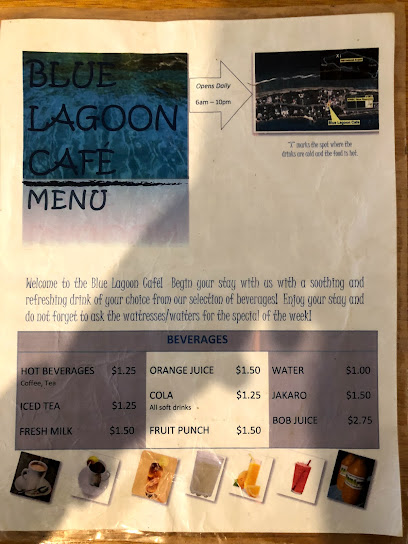
Jittak Take-out
Savor the taste of the Marshall Islands at Jittak Take-out with fresh seafood, baked treats, and aromatic coffee in Majuro.
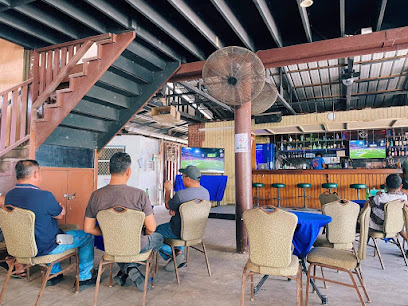
BBQ
Delight in authentic barbecue flavors at BBQ in Majuro Atoll – where local cuisine meets warm hospitality for an unforgettable dining experience.
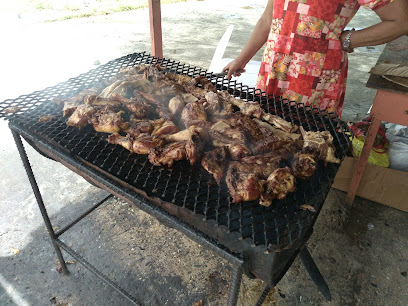
Special Restaurant 蘭姐餐廳
Experience authentic Chinese cuisine at Special Restaurant 蘭姐餐廳 in Majuro—an unforgettable taste journey in the heart of the Marshall Islands.
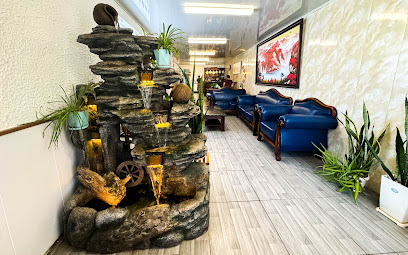
NKB Restaurant
Discover authentic Marshallese flavors at NKB Restaurant in Majuro Atoll - a culinary haven for travelers seeking unique island cuisine.
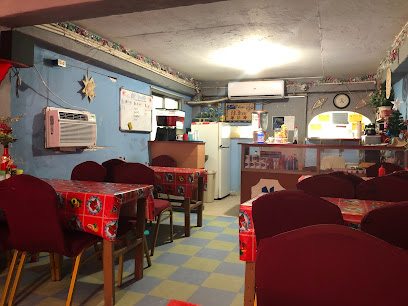
My Treehouse Take-Out
Discover family-friendly dining at My Treehouse Take-Out in Majuro Atoll - savor local flavors in a cozy setting.
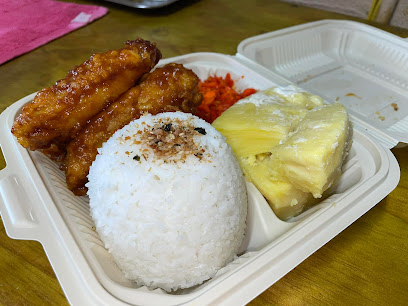
The Riwut Outback
Discover family-friendly dining at The Riwut Outback in Majuro Atoll—where local flavors meet joyful gatherings.

Markets, malls and hidden boutiques
Marshall Islands Resort
Experience unparalleled tranquility and adventure at the Marshall Islands Resort, your perfect tropical getaway in Majuro.

K&K Island Pride Supermarket
Discover the vibrant flavors of the Marshall Islands at K&K Island Pride Supermarket, your gateway to local and international products.
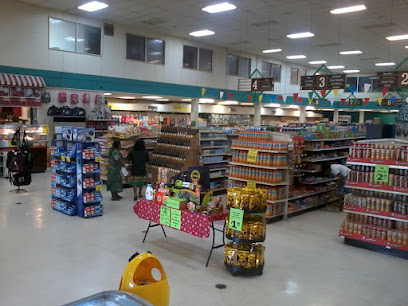
Majuro
Explore the enchanting Majuro Atoll, a serene tropical paradise with stunning lagoons, vibrant marine life, and rich cultural experiences await your discovery.
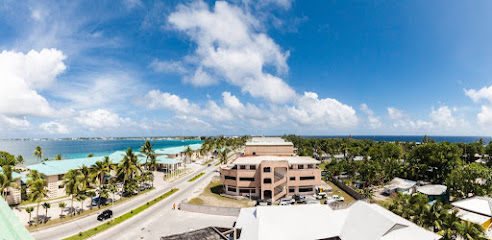
Hotel Robert Reimers
Discover the ultimate retreat at Hotel Robert Reimers, where comfort meets the cultural richness of the Marshall Islands in Majuro.
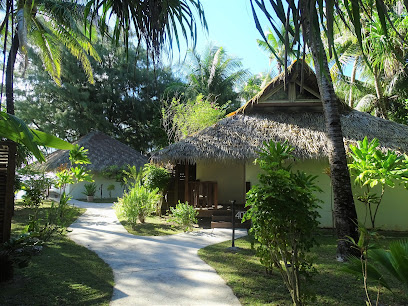
EZ Price Mart
Explore EZ Price Mart in Majuro Atoll for all your grocery needs, offering local produce and kitchenware in a friendly supermarket setting.
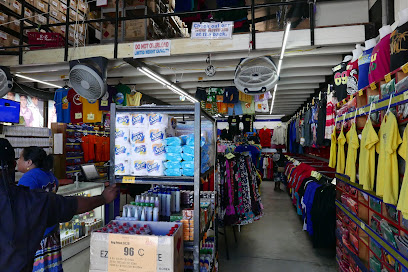
DAR
Discover the heart of Kwajalein Atoll at DAR, where local flavors meet a welcoming community atmosphere in the Marshall Islands.

Aihua Store
Discover Aihua Store, your one-stop supermarket in Majuro for local and international products, embracing the essence of Marshallese culture.
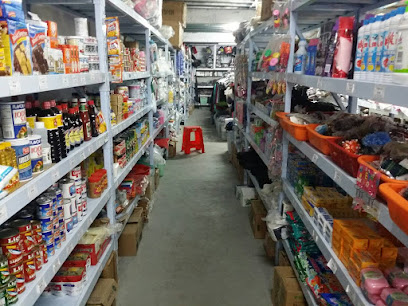
Elefa Handicraft Shop
Explore the vibrant craftsmanship of the Marshall Islands at Elefa Handicraft Shop, your go-to destination for authentic local souvenirs.
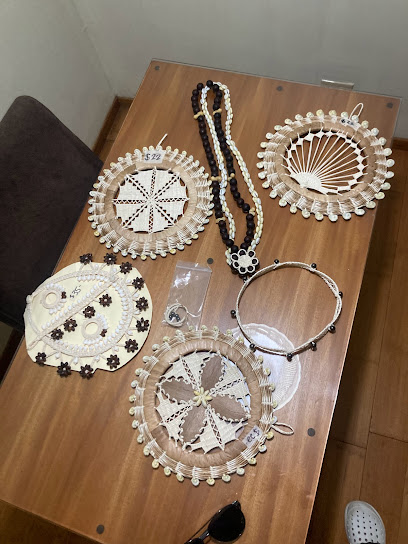
Ralik Store
Shop unique home goods and local handicrafts at Ralik Store in Kwajalein Atoll, bringing the essence of the Marshall Islands home.
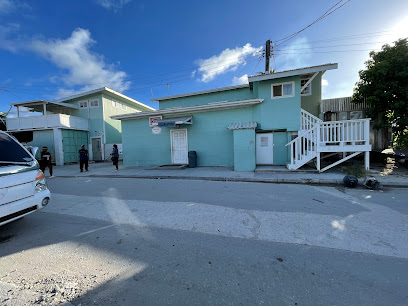
New Hope Store
Explore the vibrant fashion of the Marshall Islands at New Hope Store, where local culture meets unique style.
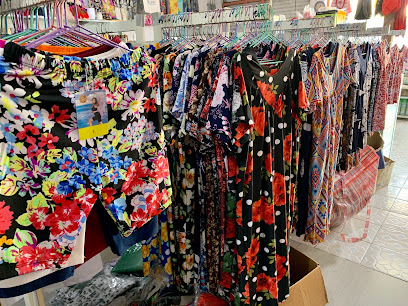
H&S Store
Explore local goods and essential services at H&S Store in Majuro, Marshall Islands, where convenience meets island charm.

M&K store
Shop local and international clothing brands at M&K Store in Majuro, a vibrant shopping destination on Majuro Atoll.
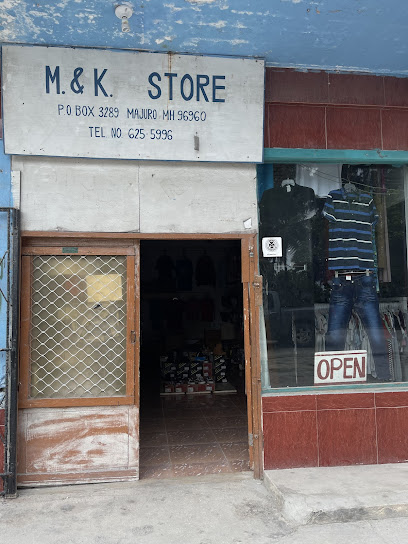
Jimmy store
Experience the local vibe at Jimmy Store, a charming tobacco shop in Majuro Atoll, offering a unique perspective on island culture and community.
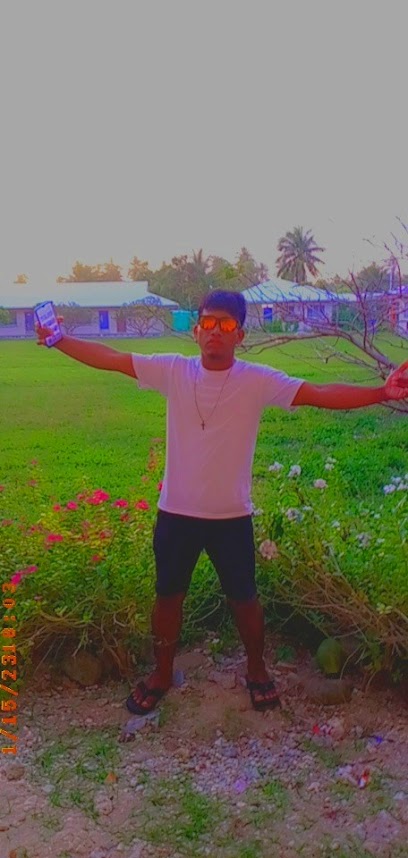
Small Island Store
Explore the Small Island Store in Majuro Atoll for unique local crafts, traditional snacks, and a taste of Marshall Islands culture.
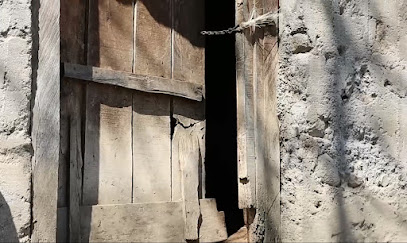
Leipajid handicraft shop
Discover authentic Marshall Islands crafts at Leipajid Handicraft Shop, where local artisans bring their creativity to life in unique handmade treasures.
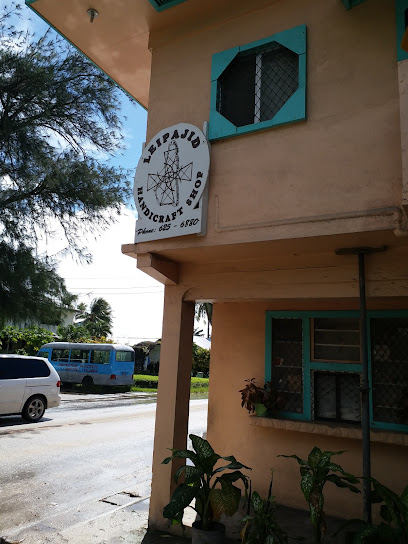
Essential bars & hidden hideouts
Bikini Atoll
Discover the breathtaking beauty and historical significance of Bikini Atoll, a hidden gem in the Marshall Islands, perfect for adventure and reflection.
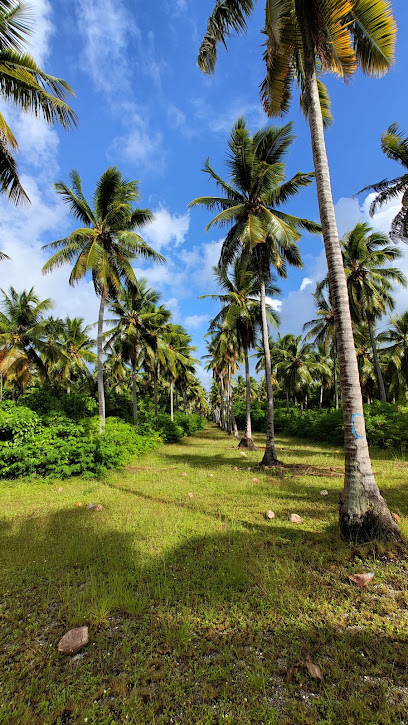
Marshall Islands Resort
Discover the serene beauty and cultural richness of the Marshall Islands Resort, your ultimate tropical getaway in Majuro Atoll.
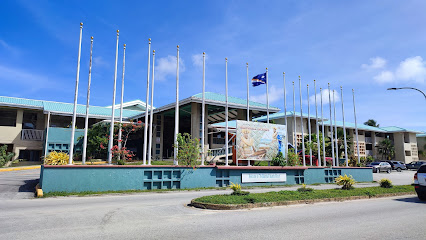
Tide Table Restaurant & Lounge
Experience the flavors of the Marshall Islands at Tide Table Restaurant & Lounge, where fresh seafood and tropical ambiance create unforgettable dining moments.
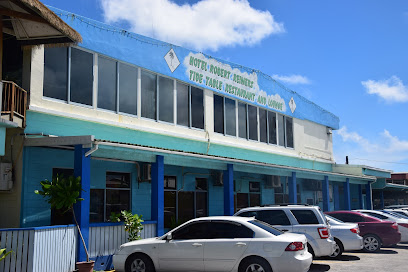
Majuro
Discover the enchanting beauty and vibrant culture of Majuro Atoll, a tropical paradise in the Marshall Islands.
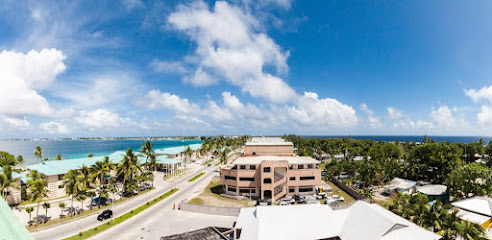
Hotel Robert Reimers
Experience the serene beauty of the Marshall Islands at Hotel Robert Reimers, where comfort meets island charm.
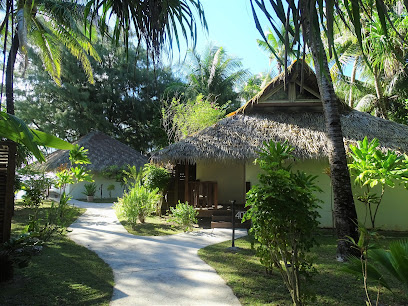
Oceanview Club
Experience the vibrant atmosphere and breathtaking views at Oceanview Club in Kwajalein Atoll, the perfect bar for relaxation and enjoyment.
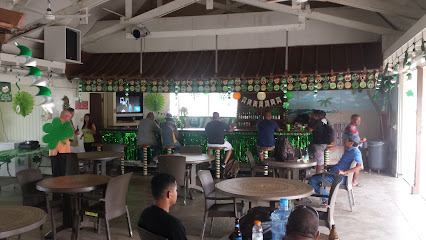
Amata Kabua International Airport
Explore the Marshall Islands through Amata Kabua International Airport, your gateway to stunning atolls, rich culture, and Pacific paradise.
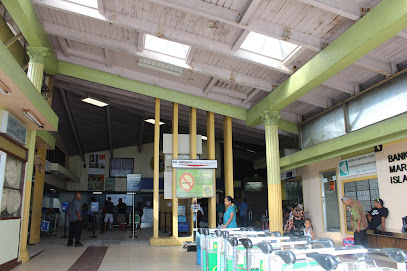
Outrigger Bar & Grill
Experience the vibrant flavors of Outrigger Bar & Grill, where barbecue meets breathtaking views in the heart of the Marshall Islands.
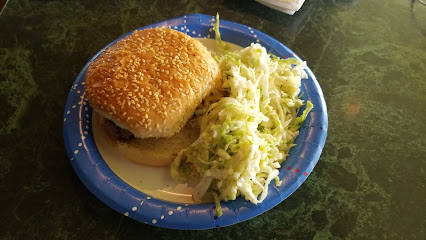
Toeak Bar and Grill
Discover the delicious local cuisine at Toeak Bar and Grill, where fresh seafood and vibrant atmosphere unite in Majuro Atoll.
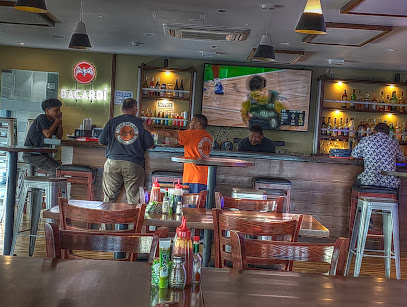
Bucholz Army Airfield
Explore the unique Bucholz Army Airfield in Kwajalein Atoll - a gateway to stunning landscapes and rich history in the Marshall Islands.
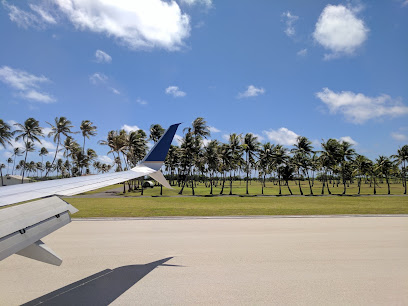
Hotel Ebeye
Discover the comfort of Hotel Ebeye in the picturesque Kwajalein Atoll, your gateway to the beauty and culture of the Marshall Islands.

Kwajalein Atoll
Explore the untouched beauty of Kwajalein Atoll, a tropical paradise in the Marshall Islands known for its stunning beaches and vibrant marine life.
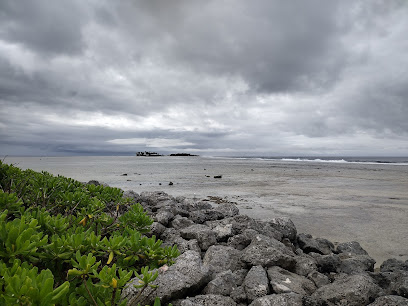
NAPA Building
Discover the vibrant business atmosphere at the NAPA Building, a key commercial hub in Majuro Atoll, showcasing the spirit of the Marshall Islands.
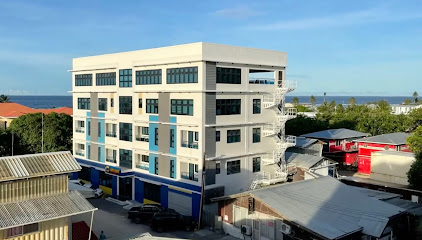
Harry's Bar
Experience the vibrant island life at Harry's Bar, where great drinks and local culture come together in the heart of the Marshall Islands.
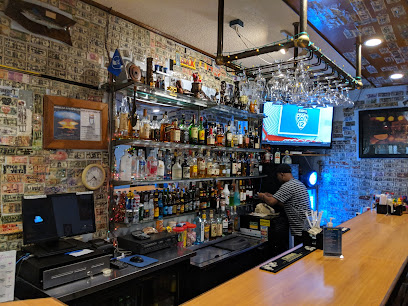
Jakaro Bar
Experience the vibrant atmosphere and refreshing drinks at Jakaro Bar, a tropical paradise in the heart of the Marshall Islands.

Local Phrases
-
- HelloIakwe
[YAH-kway] - GoodbyeKommol tata
[KOH-mohl TAH-tah] - YesEo
[AY-oh] - NoEjmour
[ay-MOOR] - Please/You're welcomeJemaan
[jay-MAHN] - Thank youKommol tata
[KOH-mohl TAH-tah] - Excuse me/SorryJeramman
[jay-RAH-mahn] - How are you?Eo im jino
[AY-oh eem JEE-noh] - Fine. And you?Jibade. Eo juon?
[jee-BAH-deh. AY-oh joo-OHN] - Do you speak English?Eo im ḷọk
[AY-oh eem lohk] - I don't understandEjjeḷọk
[ay-JE-lohk]
- HelloIakwe
-
- I'd like to see the menu, pleaseEo im ḷọk im menu, jemaan
[AY-oh eem lohk eem MEN-oo, jay-MAHN] - I don't eat meatEj moktaan kein jukjuk
[ay mohk-TAHN kayn jook-jook] - Cheers!Iomata
[YOH-mah-tah] - I would like to pay, pleaseEo im ḷọk im jemọj, jemaan
[AY-oh eem lohk eem jeh-MOY, jay-MAHN]
- I'd like to see the menu, pleaseEo im ḷọk im menu, jemaan
-
- Help!Kwaar
[kwahr] - Go away!Jiikjak
[jee-JAHK] - Call the Police!Kwaar aelōn̄ṃaan
[kwahr eye-LOHN-mahn] - Call a doctor!Kwaar daktō
[kwahr dahk-TOH] - I'm lostEj emoj
[ay eh-MOJ] - I'm illEjā
[ay-JAH]
- Help!Kwaar
-
- I'd like to buy...Eo im ḷọk im jino...
[AY-oh eem lohk eem JEE-noh...] - I'm just lookingEj kajoor kein jino
[ay kah-JOHR kayn JEE-noh] - How much is it?Kwōn ḷọk
[kwon lohk] - That's too expensiveEjabo
[ay-JAH-boh] - Can you lower the price?Eo im ḷọk im jem̧ae?
[AY-oh eem lohk eem jeh-MYAY]
- I'd like to buy...Eo im ḷọk im jino...
-
- What time is it?Kwōn tōn̄
[kwon tohn] - It's one o'clockTūḷọk
[TOO-lohk] - Half past (10)Kwōj jeban
[kwon jeh-BAHN] - MorningBoknin
[bohk-NEEN] - AfternoonJenin
[jay-NEEN] - EveningRōjet
[roh-JET] - YesterdayUjelā
[oo-jeh-LAH] - TodayIm kōj
[eem kohj] - TomorrowJen kōj
[jen kohj] - 1Jidik
[jee-deek] - 2Roñ
[rohn] - 3Jilu
[jee-loo] - 4Ejere
[ay-JEH-reh] - 5Eluj
[eh-LOOJ] - 6Jiku
[jee-koo] - 7Jilfu
[jeel-foo] - 8Ejjilu
[ay-jjee-loo] - 9Jiban
[jee-bahn] - 10Jibwe
[jeeb-weh]
- What time is it?Kwōn tōn̄
-
- Where's a/the...?Kwōn ien...
[kwon yen...] - What's the address?Kwōn jiban
[kwon jee-bahn] - Can you show me (on the map)?Eo im ḷọk im jem̧ae (i lọkaj)?
[AY-oh eem lohk eem jeh-MYAY (ee loh-KAHJ)] - When's the next (bus)?Kwōn im kwōn (bōs)?
[kwon eem kwon (bohs)] - A ticket (to ....)Em̧ae (im ....)
[eh-MYAY (eem ....)]
- Where's a/the...?Kwōn ien...
History of Mili
-
Mili Atoll, part of the Marshall Islands, has a rich history of early Polynesian settlement. Archaeological evidence suggests that the island has been inhabited for over 2,000 years. The early Marshallese people developed sophisticated navigational techniques and built intricate stick charts to map the ocean currents and islands. Their culture was deeply connected to the sea, with traditional outrigger canoes being a crucial part of their daily life.
-
The first European contact with Mili Atoll occurred in the 16th century when Spanish explorers arrived in the region. However, it was not until the 19th century that Mili became more widely known to the Western world, with visits from whalers and missionaries. These interactions began to influence the local culture and economy, introducing new goods and ideas to the island.
-
In the late 19th century, Mili Atoll became part of the German Empire. The Germans established a colonial administration in the region, focusing on copra production as a primary economic activity. This period saw the introduction of Western education and Christianity, which had lasting impacts on the local society and culture.
-
During World War I, Japan took control of Mili Atoll from Germany. The island remained under Japanese administration until the end of World War II. During this period, Mili was heavily fortified as part of Japan’s defensive perimeter in the Pacific. The island's landscape still bears the remnants of this era, with bunkers, runways, and other military installations scattered across the atoll.
-
Mili Atoll played a significant role during World War II. It was one of the last Japanese strongholds in the Pacific and was subjected to intense bombardment by American forces. The island was eventually bypassed during the island-hopping campaign, with Japanese forces surrendering in 1945. The war left a profound impact on the island, with numerous relics and wreckage still visible today.
-
After World War II, Mili Atoll came under the administration of the United States as part of the Trust Territory of the Pacific Islands. This period saw a gradual rebuilding and modernization of the island’s infrastructure. In 1979, the Marshall Islands gained self-governance, and Mili became part of the newly independent Republic of the Marshall Islands in 1986. Today, Mili Atoll is a testament to the resilience and adaptability of its people, blending traditional Marshallese culture with modern influences.
Mili Essentials
-
Mili is one of the atolls in the Marshall Islands, located in the central Pacific Ocean. The nearest international gateway is Amata Kabua International Airport in Majuro, the capital of the Marshall Islands. From Majuro, you can catch a domestic flight operated by Air Marshall Islands to Mili Airport. The flights are not daily, so it's important to check the schedule and book in advance. Alternatively, you can arrange for a boat transfer, but be aware that this can take several hours depending on weather and sea conditions.
-
Once on Mili Atoll, getting around is relatively straightforward but limited. The atoll is small, and many areas can be explored on foot or by bicycle. There are no formal public transportation systems, but you may find local boats that can transport you between islands. For longer distances, you might need to arrange transportation through your accommodation or local contacts.
-
The official currency of the Marshall Islands is the United States Dollar (USD). Credit card acceptance is extremely limited, so it is essential to carry enough cash for your entire stay. There are no ATMs on Mili Atoll, so ensure that you withdraw sufficient funds in Majuro before traveling. Small denominations are recommended for ease of transactions.
-
Mili Atoll is generally very safe, and crime rates are low. However, it's always wise to take basic precautions. Keep an eye on your belongings, especially in public areas and during boat transfers. There are no specific high-crime areas targeting tourists, but it's still best to stay vigilant. Avoid walking alone at night and be cautious of your surroundings.
-
In case of an emergency, the first point of contact should be your accommodation provider, who can assist in contacting local authorities. Mili does not have extensive medical facilities, so for serious health issues, you may need to be evacuated to Majuro. It is highly recommended to have comprehensive travel insurance that covers medical evacuations. For minor health concerns, bring a well-stocked first aid kit as pharmacies are scarce.
-
Fashion: Do dress modestly, especially in villages. Avoid wearing swimsuits or revealing clothing outside of beach areas. Religion: Do respect local customs and traditions. Always ask for permission before entering private or sacred areas. Public Transport: Since there is no formal public transport, do show appreciation to locals who offer rides or boat transfers. Greetings: Do greet people with a smile and a nod. Handshakes are not common but are appreciated in formal settings. Eating & Drinking: Do try local foods and accept food offerings graciously. Don’t refuse hospitality, as it is considered impolite.
-
To experience Mili like a local, engage with the community and participate in traditional activities if invited. Attend local events and feasts, which are excellent opportunities to learn about Marshallese culture. Fishing and snorkeling are popular activities, so consider joining a local fishing trip. Always show respect for the environment by not littering and being mindful of the delicate marine ecosystem.
Trending Landmark in Mili
-
Marshall Islands Resort
-
Emon Beach
-
Majuro
-
Hotel Robert Reimers
-
Mili Atoll
-
Kingdom Hall of Jehovah’s Witnesses, Laura Congregation
-
Geography of the Marshall Islands
-
Laura
-
Marshallese ship
-
Nell
-
Mili Island
-
The Salvation Army
-
Marshall’s Insurance Agency
-
Marshall Islands Conservation Society (MICS)
-
Parliament of the Marshall Islands (Nitijela)
Nearby Cities to Mili
-
Things To Do in Aur
-
Things To Do in Majuro
-
Things To Do in Anabar
-
Things To Do in Ijuw
-
Things To Do in Uaboe
-
Things To Do in Anibare
-
Things To Do in Denigomodu
-
Things To Do in Buada
-
Things To Do in Aiwo
-
Things To Do in Boe
-
Things To Do in Yaren
-
Things To Do in Kosrae
-
Things To Do in Nan Madol
-
Things To Do in Pohnpei
-
Things To Do in Kolonia







